In this ongoing series on the work done to maintain and improve the campus, veteran Facilities Management staffer Mark Tyler shows what it takes to keep UMF’s athletic fields in line for a busy fall schedule.
Story and photos by Marc Glass
There’s something decidedly soothing about watching Mark Tyler work. Whether he’s mowing one of UMF’s seven athletic fields or lining them to keep the players and contests on the right side of regulations, he moves with quiet focus and purpose, making sure his efforts yield precision.
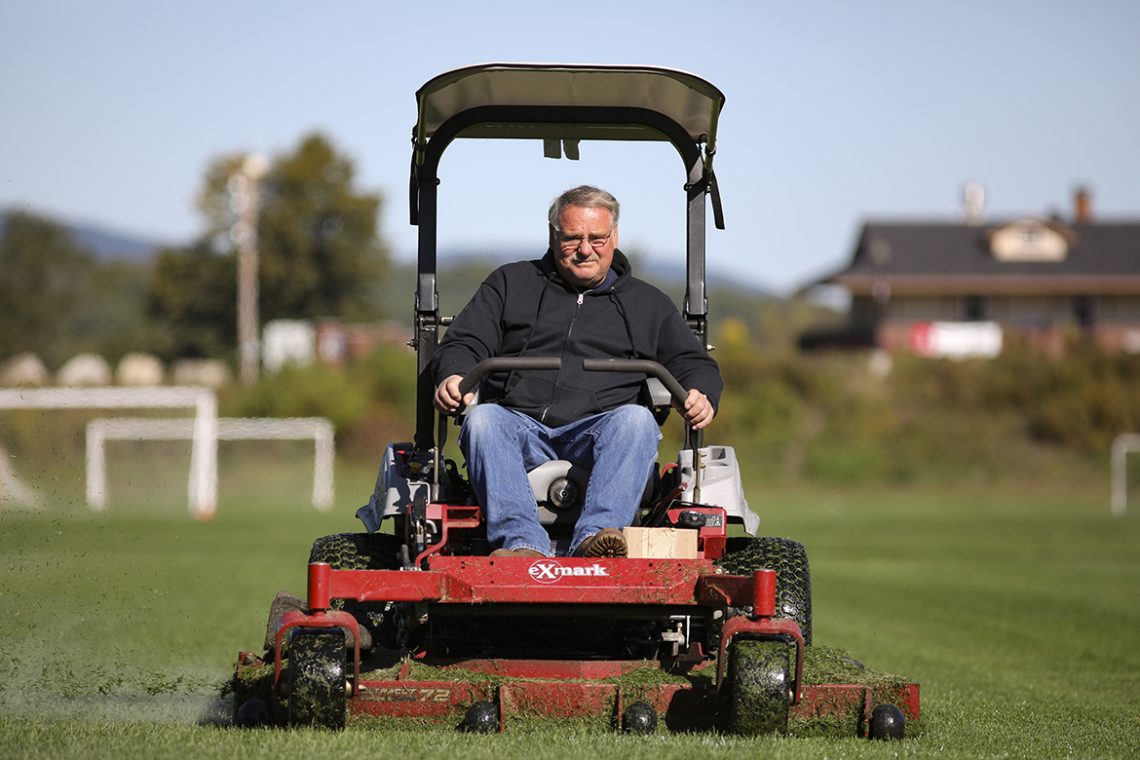
Asked how many 72-inch-wide up-and-down passes it takes to mow the Field Hockey pitch, Tyler says, “I’ve never counted.”
He begins Friday, Sept. 13, helming a commercial-grade ExMark mower up and down UMF’s 5,400-square-foot Field Hockey pitch. He’ll mow the field again later in the day, once the dew has burned away and the blades of grass bend to the light, to ensure an optimal, even cut.
The goal, says Tyler, is to provide student-athletes with “the best possible playing surface.”
“The trick is to keep the grass low for preseason practices, but still manage to keep it alive when it’s usually hot and dry,” he explains. “It takes a lot of watering and fertilizing. But after 20 years of doing it, I have a pretty good idea of what needs to be done.”
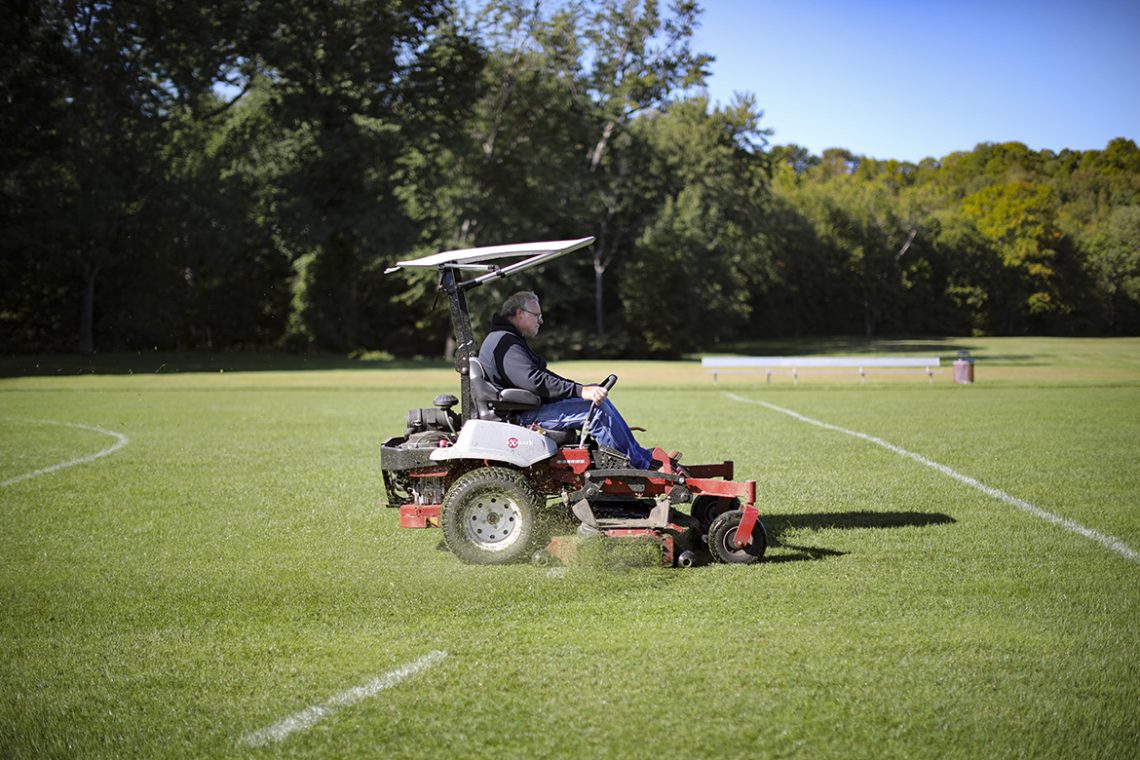
By 10 a.m., Tyler has three hours of mowing ahead of him to get all seven of UMF’s athletic fields ready for play.
As work environments go, Tyler knows he has it pretty good at UMF. After all, the area comprising Prescott and Leib fields is arguably some of the prettiest real estate in a very pretty town.
“Over my 38 years of working with Facilities, I like this the best of any of the jobs I’ve had,” Tyler says. “You’re outdoors, and it’s beautiful down here. There are a lot worse places to be.”
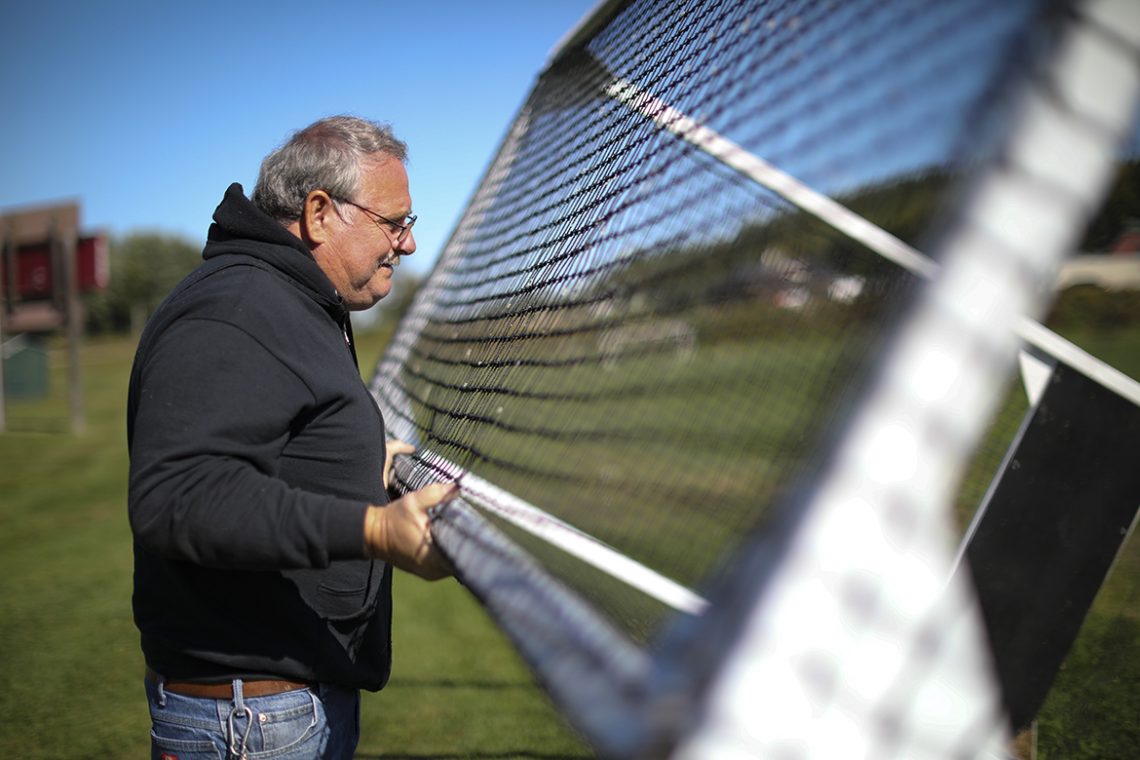
Aside from refueling, the only thing to interrupt the flow of mowing a practice field is resetting a goal.
And then there’s the absence of people. (Speaking for myself, it’s an introvert’s delight.)
“Usually, it’s just me down here. It’s quiet,” he says. “I know what has to be done and how long things will take.”
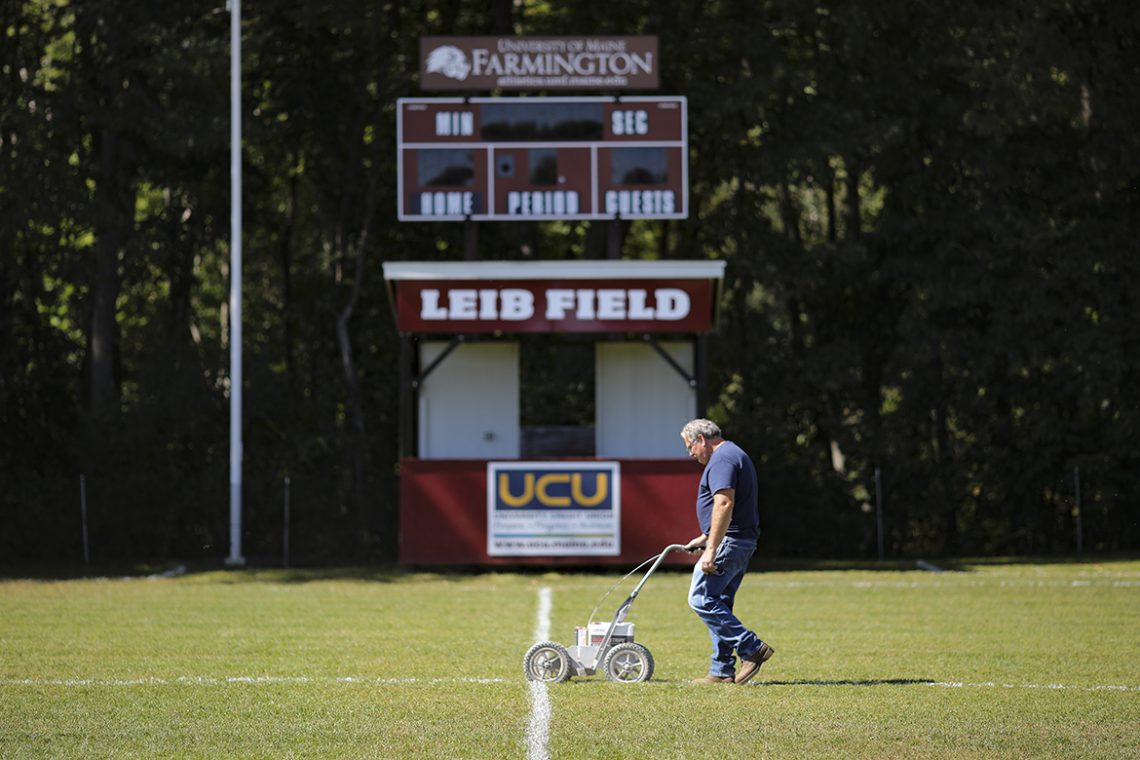
Tyler gets his steps in for the day while lining Leib Field.
Tyler says getting Leib Field ready for fall season play — the first cut, plus lining the field and staging the bleachers and fences — takes about 72 hours.
Asked how he knows where to paint the lines the first time of the season (long after winter snows and spring rains have washed away any trace of the last set), Tyler grins.
“That’s the hard part you don’t see,” he says.
He then points to a plastic pin, set in the ground like a surveyor’s mark, in the corner of Leib Field.
“I put one in each corner years ago,” he explains. “I have drawings of each field and the plastic pins help me mark out the lines. I take string that’s like bailing twine and run it from pin to pin and stretch it tight as a guide. That’s how I know where to mark out the lines.”
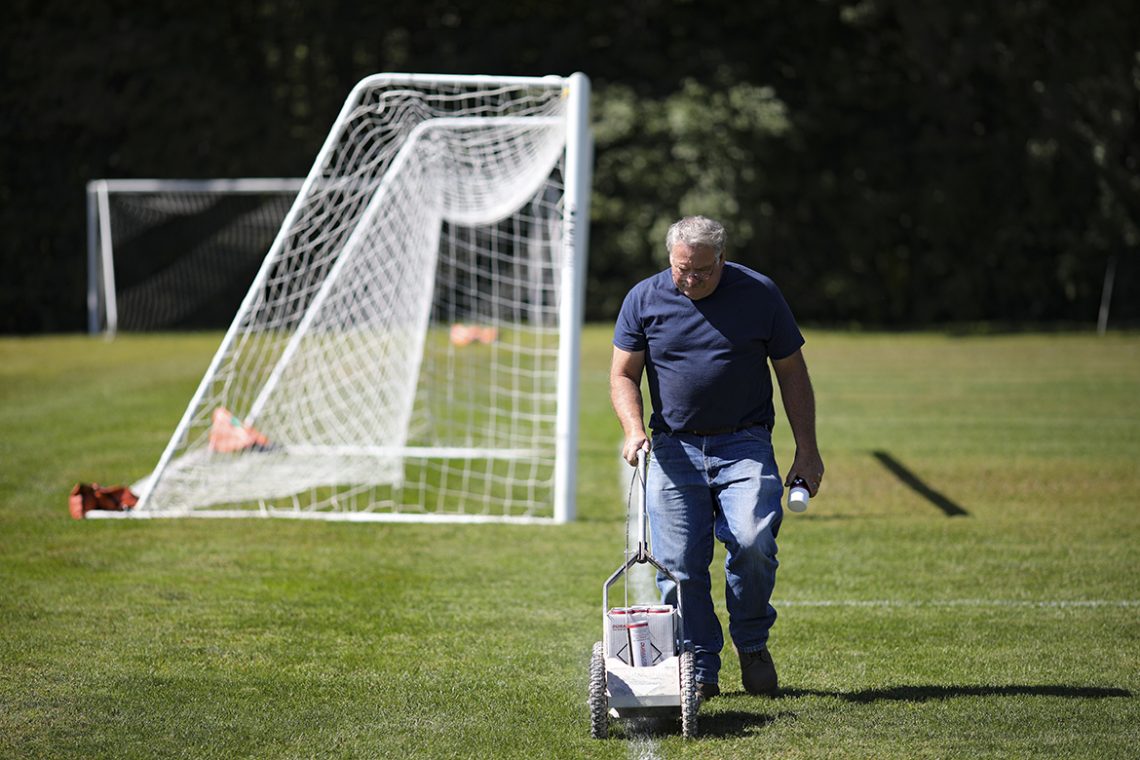
“I really should watch the games more closely to know what all the lines are for,” says Tyler with a laugh. “The important thing is I know exactly where they all go.”
The painting of the lines also involves some intentionality — and thousands of steps.
“I start lining a field clockwise and then make another pass counterclockwise,” he explains. “That way, you’re covering both sides of the blades of grass and you get deeper coverage that holds up better during the season.”
By game time, Tyler is sometimes done and gone for the day. Even though he’s often not around to see the fields he curates in use, he gets his share of kudos.
“The coaches are definitely appreciative of what you do. When they say, ‘Everything looked good,’ that makes you feel appreciated.”
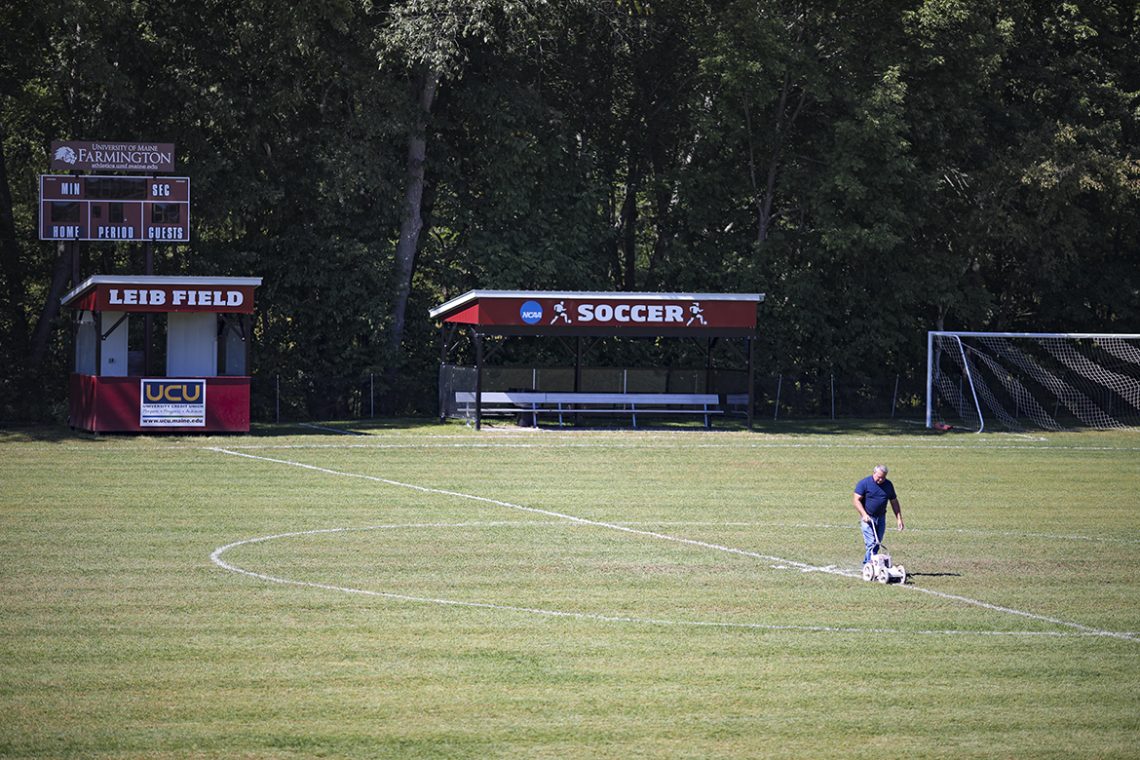
“There are a lot worse places to be,” says Tyler of his work environment. “Usually, it’s just me down here. It’s quiet.”
Tyler is a 38-year veteran of UMF’s Facilities Management team. When he’s not mowing and it’s not snowing, he begins his day on “trash patrol,” keeping campus from Merrill Hall to the Mantor Library Green free of debris. In winter, he’s usually on snow patrol, either behind the wheel of a plow truck or hand-shoveling steps and sidewalks.

